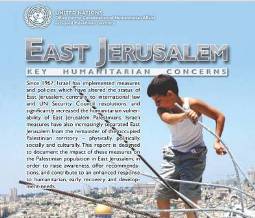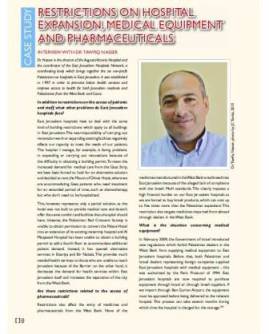The April 27 news that Palestinian factions have taken steps toward a unity government (see Fatah and Hamas Announce Outline of Deal) has created a storm of reactions, especially in the Israeli and United States governments. There have been similar responses to Palestinian unilateral moves toward statehood.
Notably, however, even in Israel not all the reactions are negative. Americans committed to the cause of Middle East peace can read Israeli and Palestinian news outlets to understand the diverse range of positions often ignored in less nuanced approaches here in the U.S.
Below are pertinent excerpts from Israel’s daily newspaper Haaretz (for this reader, Israel’s NY Times equivalent) and the Ma’an News Agency, which calls itself ” the main source of independent news from Palestine.”
Israel can redeem itself by recognizing a Palestinian state
Haaretz Editorial
Israel can improve its status if it takes its fate into its own hands. It can be the first to welcome the establishment of a Palestinian sister-state, wish it luck, hold out its hand in peace and express a desire to discuss borders, refugees and settlements issues, this time on an entirely different level − as two sovereign states.
Perhaps such a courageous and generous step will help Israel shake off the stranglehold of delegitimization closing in on it, reduce the responsibility it has been charged with for the refugee problem and the occupation, and shift the conflict from the religious to the territorial dimension. On the tactical level, Israel will be able to pass the responsibilities required of a state to the Palestinian side as well, whatever its government.
What matters is peace, not with whom peace is made by Yoel Marcus
The reconciliation between Hamas and Fatah is not necessarily a negative development, if the Palestinians are bent on an agreement. It creates an opening for an Obama initiative to create order here, while neutralizing terrorism.
In the absence of leaders, it’s up for Israelis to make peace by Akiva Eldar
Netanyahu’s demand that Fatah concede its peace with Hamas in favor of peace with its neighbor is an indication mainly of hysteria. If the prime minister were genuinely interested in promoting the two-state solution, he would willingly accept Hamas’ readiness to accept the conditions of the organization that signed the Oslo agreement, which is taking steps against the use of violence and is committed to the Arab peace plan.
Masha’al, Abbas to sign unity deal
The announcement sparked a firestorm of criticism from Israel, which said it would damage chances for peace, but Abbas said the interim government would not dictate policy when it came to negotiations with Israel, which would remain the mandate of the Palestine Liberation Organization that he heads.
Will Palestine be born this fall? by Daoud Kuttab
The failure of the peace talks because of Israel’s intransigence and the inability of the Quartet, coupled with the world praise for the performance of the Fayyad government, have all paved the way for the possible unilateral declaration of a Palestinian state. Over 140 countries have indicated that they would support such a declaration when it comes up for a vote at the UN. This number might go even higher once the reluctant countries of Europe make up their mind


